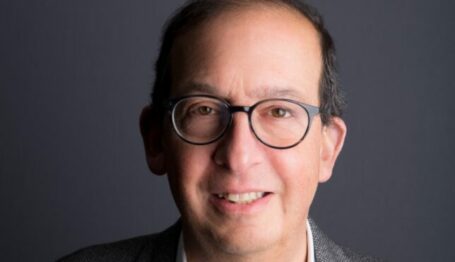Philanthropy
Response: What Went Wrong (and Right) with Conservative Philanthropy
 Image via Philanthropy Daily, goo.gl/1gfYpx
Image via Philanthropy Daily, goo.gl/1gfYpx

This article originally appeared on Law and Liberty. Read other responses to “What Went Wrong (and Right) with Conservative Philanthropy” here.
We very much appreciate Law & Liberty’s selection of such esteemed practitioners of and experts on philanthropy in general, and conservative philanthropy in particular, to comment on our Liberty Forum essay. We also thank each respondent for taking our observations so seriously and offering such sound analyses of the elemental challenges facing conservatism, philanthropy, and conservative philanthropy. We enjoyed the exercise and hope others found it helpful.
The comments, we think, basically accept our underlying premises, albeit with some differences in emphasis that issue in varied recommendations as to how to meet these challenges.
We generally called for more thought regarding the best balance between principles, policy, and patience among conservative givers. More specifically, we urged them to return to a longer-term worldview—one that would, as we put it, be more concerned with the immanent than the imminent. Such a return would necessarily make conservative giving less presentist and also less process-based—less driven by numerically quantifiable results to be achieved by a date certain, less encumbered by an election-cycle calendar. Such differently balanced giving might not have missed that which gave rise to the ascendance of Donald Trump. It might have resulted in a better-anchored conservatism after his tenure, however long that may be.
Human Nature and Humility
We welcome our onetime Bradley Foundation colleague William A. Schambra’s in-depth exploration of the benefits to philanthropy of patience—and the risks to givers, and their recipients, of allowing patience to be overwhelmed by other considerations. We worked with, know, and very much respect Schambra, and we would welcome further such exploration, by and with him and others. The work of his Bradley Center on Philanthropy & Civic Renewal at the Hudson Institute remains an exemplar of how to go about analyzing questions facing philanthropy, elemental and otherwise; our essay, of course, relies on some of that work.
Consistent with his whole career’s work, Schambra’s response zeroed in on the progressive philanthropic vision that “draws on the findings of natural and social science, which enable us to reconfigure human nature in ways unimaginable to America’s Founders, who had to operate within the confines of human nature as they found it.” We wholeheartedly agree with that criticism and its understanding of and respect for human nature—as it is, and was when the Founders constructed the American experiment. “Conservative philanthropic patience is rooted in the awareness that” the “utopian vision” of the progressives is “destined for frustration.”
We fully understand, too, the frustrations that come with funding with patience. Echoing Schambra and the other commenters, we also urge an openness to self-criticism in conservative philanthropy. It should include looking honestly at short-termism in grantmaking. This is probably just the time for such a reassessment. To the degree there has been recent conservative success, we think it can be credited in large part to patience.
We agree with Schambra that those who prescribe a return to humility should be heard, and heeded—and well-funded. For we trust, as he does, that we can “restore the patience of outlook that characterizes conservative philanthropy at it best.”
The Alienation Has Deep Roots
We also welcome Hudson Institute Chief Operating Officer John P. Walters’ comments, including his description of the fragmentation of conservatism, what philanthropy might have had to do with it, and what it might now do about it. We have known and respected Walters, and his wisdom and judgment, for decades, as well. We thus noted with interest his diagnosis of what he, a former Philanthropy Roundtable head, says “may be the biggest failure of conservative philanthropy”: the non-achievement, at least yet, of widespread success in holding higher education to what it says are its highest aspirations. We share his concerns.
While we’re all for humility, we’re certainly not for the humiliation of conservatives and conservatism on American college campuses. From its academic commanding heights, the elite Left has seriously alienated itself from our nation’s founding principles. Distressingly, some on the Left have outright rejected those principles. Some on the Right, including the University of Virginia’s James W. Ceaser for the 2006 Bradley Symposium, warned of the deep-rootedness of this alienation and rejection. As Walters recognizes, conservative philanthropy has not meaningfully reached those roots in the academy, or at least not in a timely enough fashion to affect their unhealthy fruits.
Having said we’re all for patience, though, we do share Walters’s optimism that conservative philanthropy can rise again, perhaps including the retaking of some of the heights. Good efforts remain underway, and more are contemplated.
Just Another Word for Persistence
The response to our essay by Mark C. Henrie is not without optimism, either. Henrie hails what may be a Trump-spurred, or -signified, “new birth of intellectual freedom” on the Right.
The country’s public discourse has been greatly improved by the Rupe Foundation that Henrie helps lead, and his historically informed and thoughtful comments reflect why. His bulleted list of that which “the Trump phenomenon has brought into view” constitutes a helpful agenda for discussion that we hope continues, as conservatives (including conservative givers) “learn from the phenomena that surround” the advent of the current administration in Washington.
We found the inclusion on Henrie’s list of what the Internet and social media have done and are doing to public discourse worthy of much more thoroughgoing conversation in and of itself. His overview of “so weighty a question as the structure of the public sphere” is advantageously succinct, more so than some others have been on issues regarding the flow of information and opinion.
Reacting to our essay-ending point about the books and other publications that would have been beneficial in the public discourse earlier than they appeared, Henrie ends with a lamentation about what prevented their appearance. “Those works could not have appeared before Trump because the conservative movement gatekeepers,” he writes, “would have ruled them out of order, with extreme prejudice.” We agree. Whether the new “intellectual freedom” is “cultivated or is allowed to sputter out will depend to a large degree on the attitude of philanthropy,” he writes. We agree again.
In short, there is little to quarrel with in these responses. We are grateful for them, and for those offering them. We too have optimism about the future, about achieving a better giving balance between principle, policy, and patience, with the whole balancing being tempered by greater humility. Patience is just another word for persistence, we suppose, and persistence always pays. Persistent philanthropy might pay even more—monetarily and otherwise.


